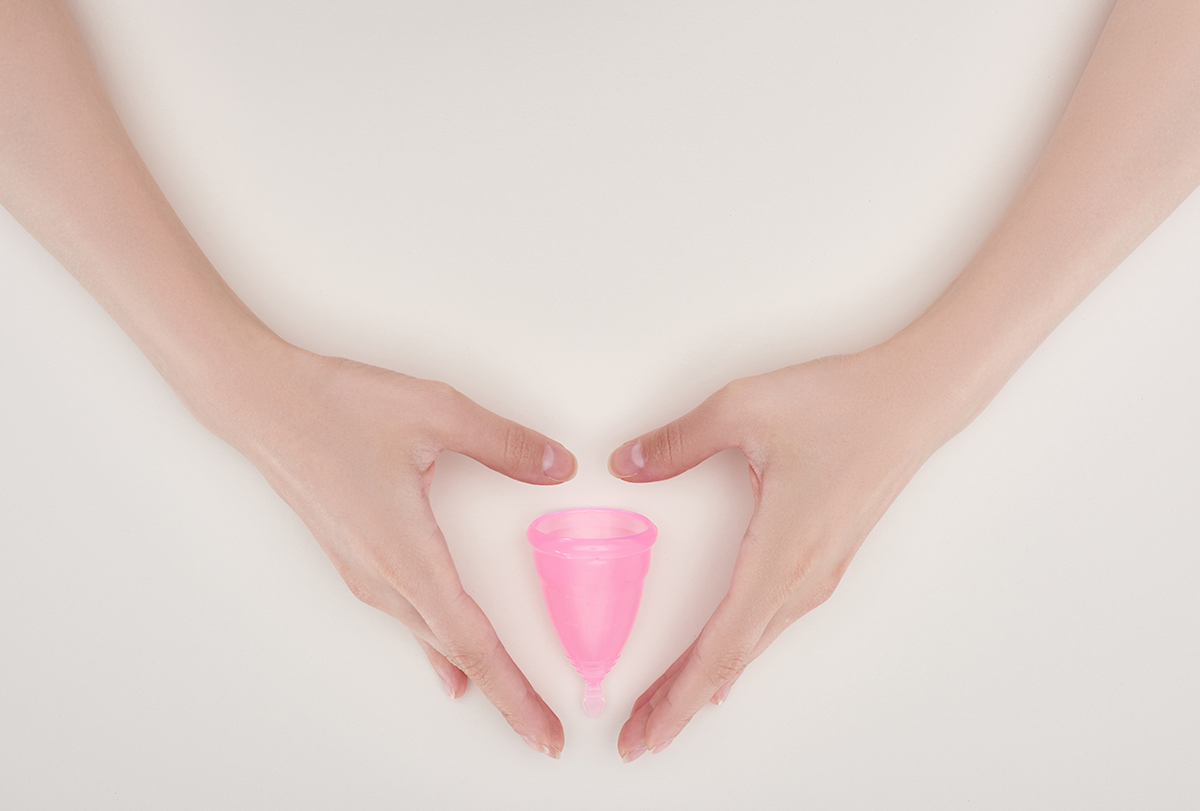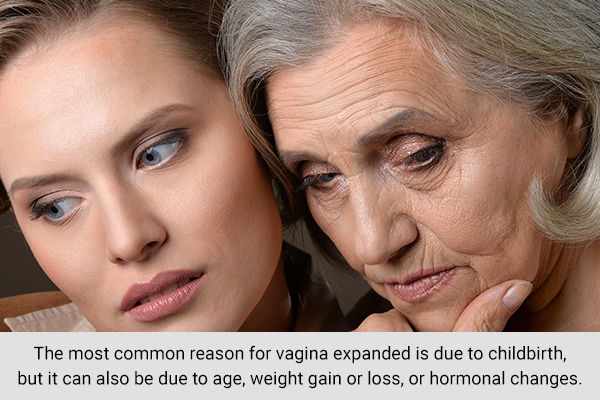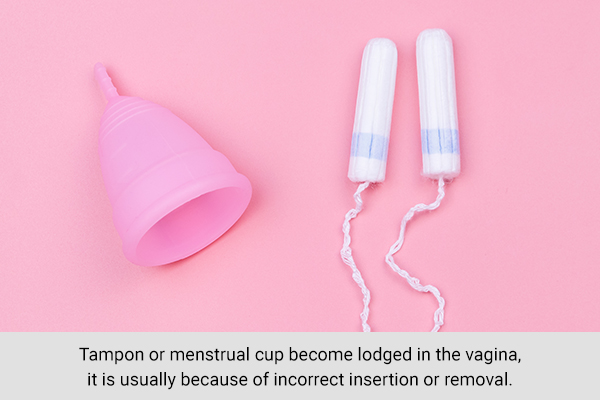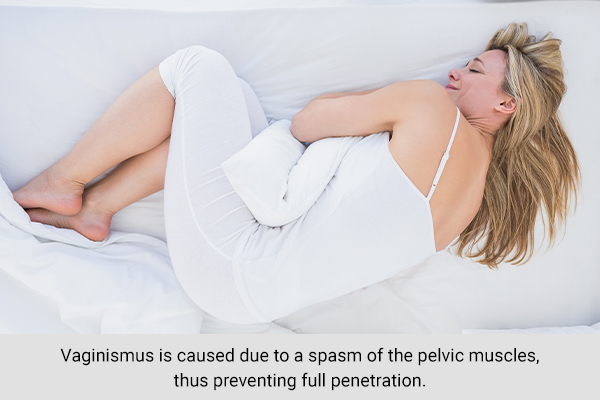In this article:
You think you know your body pretty well. But when it comes to the vagina, there’s a lot of misinformation out there. And even if you think you know everything there is to know about your lady parts, there’s always more to learn.

This article explores the things you probably didn’t know about your vagina. From its self-cleaning properties to its amazing ability to expand, the vagina is truly a wonder. Get ready to have your mind blown!
Not All Women Have Vaginas and Not All People With Vaginas Are Women
There’s a lot of confusion out there about what exactly a vagina is and who has one. To set the record straight: not all women have vaginas and not all people with vaginas are women.
Here’s a little anatomy lesson: the vagina is just one part of the female reproductive system, which also includes the ovaries, fallopian tubes, and uterus. So, while all women have reproductive systems, not all women have vaginas.
For example, trans women may have had surgery to construct a vaginal opening, but they were born without a uterus or ovaries. (1)
Similarly, not all people with vaginas are women. Some transgender men have undergone surgery to remove their uteruses and ovaries, but still have vaginas. And some intersex people are born with both male and female genitalia, including a vaginal opening. (2)
So when we say “vagina,” we’re really referring to an anatomical structure that isn’t exclusive to any one gender identity.
Physiology differs from anatomy in the sense that it reflects the changes you experience as a result of hormonal changes during puberty, menstruation, pregnancy, or menopause.
Vaginas and Vulvas – The Bare Truth
The vagina and vulva are two different things. The vagina is the muscular tube that connects the uterus to the outside of the body. The vulva is everything else you can see on the outside of the body, including the labia, clitoris, and vaginal opening. (3)
Can the Hymen Repair Itself?
The vagina is an amazing and complex body part, and there’s a lot you probably don’t know about it. For instance, did you know that the hymen is a thin piece of tissue that covers the opening of the vagina? It’s not a “bone,” as many people believe.
The hymen can be broken during activities such as sex, tampon use, or even strenuous exercise. Once it’s broken, it can’t grow back.
However, the tissue around the hymen is very stretchy, so it can accommodate things such as fingers, tampons, and penis penetration without tearing. (4)
Help! My Vagina Has Expanded After Birth!

Yes, the vagina can change in size and shape. The most common reason for this is childbirth, but it can also be due to age, weight gain or loss, or hormonal changes.
The vagina may become wider or narrower, and the walls may become thinner or thicker. (5) These changes usually aren’t permanent, but they can be.
Your Vagina Is Self-Cleansing
It’s no secret that poor hygiene can lead to infection and other problems in the vaginal area. However, you may not know that the type of wash you use can also have an effect on your vaginal health.
Intimate hygiene washes are designed to cleanse the delicate skin of the vagina without causing irritation. However, some women find that these products can cause more harm than good. (6)
For example, intimate hygiene washes often contain fragrances and other harsh chemicals that can disrupt the natural balance of the vagina. This can lead to dryness, itching and even burning. In some cases, these products can also cause allergic reactions or skin irritation. (7)
If you’re concerned about the effect of intimate hygiene washes on your vaginal health, it’s important to talk to your doctor or gynecologist. They can help you choose a product that won’t cause any problems.
Did I Just F**t While Having Sex?
A queef is the expulsion of air from the vagina. It’s usually caused by either sexual activity or inserting an object into the vagina. Sometimes, a queef can happen spontaneously. (8)
While a queef doesn’t cause any harm, it may be embarrassing. If you’re concerned about a queef, talk to your doctor.
Both men and women can fart while having sex, and some may even experience abdominal discomfort, bloating, or a need to use the washroom. However, most of the time, this is caused by anxiety and not any medical condition.
If you are experiencing any of these uncomfortable sensations, you can try the following tips:
- Do some breathing exercises before sex.
- If you sense a fart coming, switch your sex position or try a new one.
- Prefer scheduled sex over unplanned encounters.
- Make your partner feel comfortable.
- Avoid having carbonated drinks before sex.
- Have a light meal before having sex, or wait for a few hours after a heavy meal.
Is Your Vagina a Black Hole?

The answer to this question is both yes and no. It is possible to lose a tampon or menstrual cup inside your vagina, but it is also very unlikely.
The vagina is a self-cleaning organ with a natural ability to keep things in place. If a tampon or menstrual cup does become lodged in the vagina, it is usually because of incorrect insertion or removal. (9)
Vagina and Scent
The vagina has a very distinct and strong scent. This is because it is full of bacteria that help to keep the vagina healthy. The scent can vary depending on a woman’s diet, menstrual cycle, and overall health. (10)
Your Vagina Needs a Workout!
There are a lot of things that you probably don’t know about your vagina, but one thing that is important to know is how to keep it healthy and strong. One way to do this is through Kegel exercises.
Kegel exercises are simple clenching and unclenching exercises that can be done anywhere at any time. All you need to do is tighten your pelvic floor muscles (the muscles that support your uterus, bladder, and rectum) and hold for a count of five. Then, relax for a count of five. You can do this exercise while you’re sitting, standing, or lying down.
Not only will Kegel exercises make your vagina stronger, but they can also help with incontinence, bowel movements, and sexual pleasure. (11) So, there are plenty of reasons to start doing them today!
Vaginal Tightening – A Myth?
Vaginal tightening is a popular topic of conversation, but is it really a thing?
The vaginal canal is a muscular tube that is able to expand and contract. This flexibility allows it to accommodate things such as sex and childbirth. However, this does not mean that the vagina can permanently change shape or size. (3)
So, what about products that claim to tighten the vagina? Unfortunately, there is no scientific evidence to support these claims. In fact, most of these products are nothing more than astringents that temporarily shrink the tissue.
Can the Vagina Tear?

It is possible for the vagina to tear, but it is not common. The vagina is a very elastic and tough organ, so it takes a lot of force to cause a tear. Tears usually occur during childbirth or strenuous activity, such as horseback riding. (3)
If the vagina does tear, it will usually heal on its own within a few weeks. If the tear is large or deep, you may need stitches to help it heal properly.
Does the Presence of a Hymen Indicate Virginity?
No, the presence or absence of the hymen is not an accurate or reliable way to determine history, sexual activity, or sexual assault. Sadly, even in these modern times, some people consider an “intact” hymen as proof of virginity, which is not only insulting to the person but also unscientific. (12)(13)
Hymens are present in various shapes and forms, and hence, it is impossible to determine whether tearing has occurred as a result of daily activities, sports, physical injury, tampon or menstrual cup usage, or if the person was born that way.
The hymen (if present) is a very thin tissue, with hardly any blood supply. Hence, it is important to understand that any pain or blood during first-time sex is usually due to anxiety, nervousness, or discomfort, which could lead to poor vaginal lubrication. (12)(13)
It is also important to keep in mind that virginity testing is a human rights violation, as declared by the World Health Organization in 2018. (14)
Most-Asked Questions About Vaginal Health
Can my vagina expand and shrink?
Yes, your vagina can expand temporarily due to hormonal changes, vaginal birth, or age. (5) These changes are not necessarily permanent, but if they are caused by surgery or trauma, they can remain permanent.
How can I take care of my vagina?
It is important to understand that the vagina is the inner tube that cannot be seen, while the vulva consists of the outer “lips,” clitoris, and vaginal opening. (3)
You can clean the vulva gently with mild soap and warm water, but take care not to use any cleaning agents or douches inside your vagina as they can disrupt the pH. (6)
What is vaginismus?

Vaginismus is caused by a spasm of the pelvic muscles, thus preventing full penetration. It is a psychological conditional reflex and results from an intense fear of penetration.
Treating a patient with vaginismus consists of a proper diagnosis by a gynecologist and teaching relaxation techniques. (15)
Are vaginal cancers common?
No, vaginal cancers are rare, usually seen in the early mid-50s. Causes of vaginal cancer can vary from trauma, chronic use of pessaries, and use of products containing carcinogens such as synthetic sprays and douches.
Vaginal cancers can also be related to a previously occurring cancer of the endometrium, vulva, or cervix. (16)
Final Word
Did any of these things surprise you? Chances are, even if you consider yourself fairly knowledgeable about vaginas, there were at least a few things on this list that were new to you. And that’s okay!
The vagina is a complex and mysterious creature, and there’s always more to learn about it. So, keep reading, keep asking questions, and most importantly, keep enjoying your vagina!
- Was this article helpful?
- YES, THANKS!NOT REALLY


